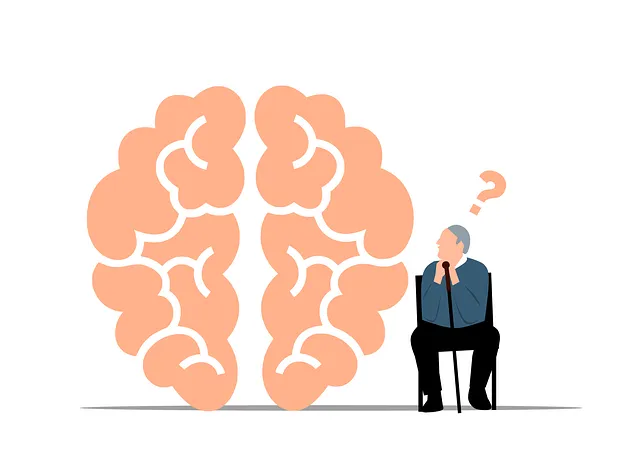The media's portrayal of mental health profoundly impacts public perception and patient experiences, as seen in the positive reviews of Northglenn Kaiser Permanente mental health center. Responsible media coverage featuring diverse narratives reduces stigma, encourages empathy, and supports better access to care. Inaccurate or sensationalized stories perpetuate harm. To combat this, advocates push for media literacy among both the public and mental health professionals. The Northglenn Kaiser Permanente Mental Health Center, praised for its holistic approach and cultural sensitivity, serves as a model. Utilizing resources like center reviews, consulting experts, and lived experience advocates can create nuanced media narratives that destigmatize mental illness and foster support.
Mental illness representation in media significantly influences public perception and understanding of psychological health. This article delves into the profound impact of media portrayals on mental health perceptions, exploring both negative stereotypes and the potential for positive change. We highlight the Northglenn Kaiser Permanente Mental Health Center as a model for accurate and sensitive representation, offering valuable insights from their successful initiatives. Furthermore, we provide strategies to enhance media accuracy and sensitivity in mental health narratives, drawing upon real-world examples and expert opinions, including reviews of the Northglenn Kaiser Permanente mental health center.
- Understanding the Impact of Media Portrayal on Mental Health Perception
- Northglenn Kaiser Permanente Mental Health Center: A Model for Positive Representation
- Strategies to Enhance Media Accuracy and Sensitivity in Mental Health Narratives
Understanding the Impact of Media Portrayal on Mental Health Perception

The media plays a significant role in shaping societal perceptions about mental health. Accurate and empathetic representation can foster understanding and reduce stigma, while negative or stereotypical portrayals can exacerbate existing issues. At the Northglenn Kaiser Permanente mental health center, reviews highlight the impact of responsible media coverage on patient experiences and recovery. When media portrays individuals with mental illnesses as complex humans with diverse stories, it encourages empathy from the public, potentially leading to increased support and access to care. Conversely, inaccurate or sensationalized narratives can perpetuate harmful myths, contributing to the marginalization of those struggling with their mental health.
Professionals in the field, such as those involved in risk assessment for mental health professionals, emphasize the importance of media literacy. Educating both the public and mental health practitioners about responsible media representation is crucial. Mental health education programs design should incorporate discussions on emotional regulation, encouraging critical thinking about media content. By addressing these aspects, we can create a more supportive environment where accurate information prevails, ultimately benefiting individuals seeking help at centers like Northglenn Kaiser Permanente.
Northglenn Kaiser Permanente Mental Health Center: A Model for Positive Representation

The Northglenn Kaiser Permanente Mental Health Center stands as a beacon of hope and accurate representation in the media landscape. This mental health facility has gained recognition for its holistic approach, offering comprehensive services that cater to diverse patient needs. With a focus on breaking stereotypes, the center presents a model for positive depiction in the media. By prioritizing cultural sensitivity in mental healthcare practice, they ensure that every individual receives personalized care.
The center’s commitment extends beyond treatment; it actively involves itself in education and awareness campaigns, including the production of a Mental Wellness Podcast Series. These initiatives aim to destigmatize mental illness while providing valuable burnout prevention strategies for healthcare providers. Northglenn Kaiser Permanente’s approach is a testament to its dedication to not only improving patient outcomes but also shaping a more inclusive and understanding media narrative.
Strategies to Enhance Media Accuracy and Sensitivity in Mental Health Narratives

To enhance the accuracy and sensitivity of mental health narratives in media, several strategies can be employed. First, Northglenn Kaiser Permanente mental health center reviews and similar resources can serve as benchmarks for portraying authentic experiences while ensuring cultural competency and diversity. By consulting with experts, individuals who have lived through these conditions, and advocates, media creators can craft more nuanced stories that challenge stereotypes.
Additionally, initiatives like Stress Management Workshops Organization play a crucial role in promoting Mental Health Awareness. These workshops can educate both creators and audiences on the complexities of mental illness, encouraging empathy and accurate representation. Moreover, highlighting Emotional Healing Processes through these narratives can foster a more supportive societal environment, reducing stigma and encouraging help-seeking behaviors.
Media plays a pivotal role in shaping societal perceptions of mental health. By learning from initiatives like the Northglenn Kaiser Permanente Mental Health Center, which sets a standard for positive representation, we can develop more accurate and sensitive narratives. Implementing strategies to enhance media accuracy, as highlighted in this article, is crucial to reducing stigma and fostering understanding. The center’s success in handling these complex issues through honest portrayals and patient-centered approaches offers valuable insights for the industry. Moving forward, it’s essential to continue these efforts, ensuring that mental illness is represented with dignity and realism, as evidenced by Northglenn Kaiser Permanente mental health center reviews.

